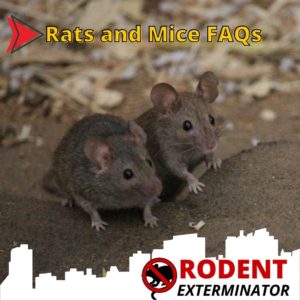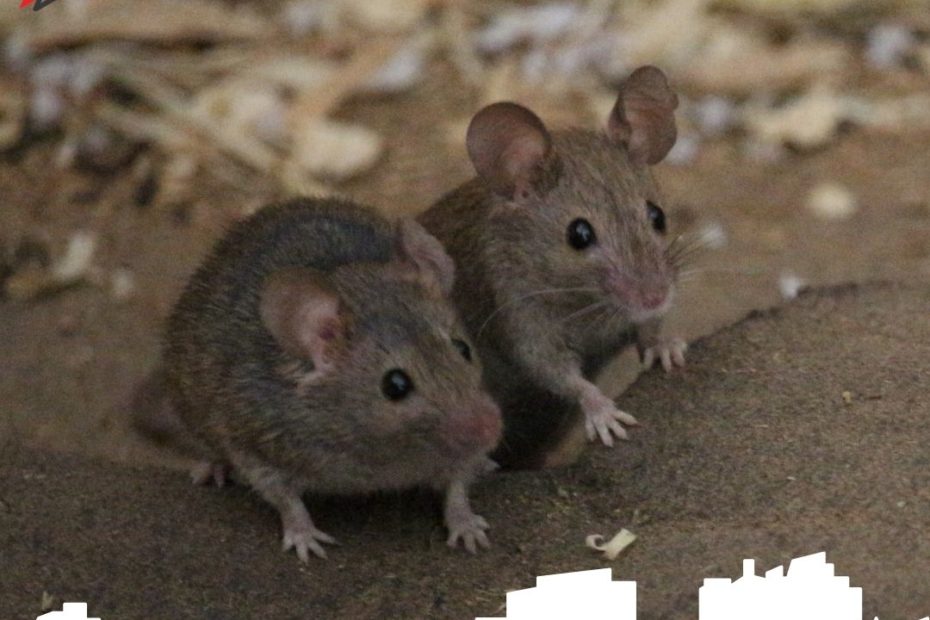Rodents can be a nuisance in and around the home. They can contaminate food, damage property and spread diseases.
No one likes to find rodents scurrying around their home, but unfortunately, they can be a common occurrence.
In this article, we will answer some of the most commonly asked questions about rats and mice. So read on for more information!
What are rodents? 
Rodents are a placental mammal order with over 2,280 species; it is the largest mammal order. Except for Antarctica, they can be found in significant numbers on all continents.
Includes mice, rats, squirrels, and beavers. They are characterized by their two incisor teeth, which grow continuously throughout their lives.
What are rats?
Rats are small, brownish rodents that can be found all over the world. They are closely related to mice, and share many of the same characteristics.
Rats are considered pests because they can damage property and spread diseases. They are also considered a nuisance because they often invade homes and other buildings.
What are mice?
A mouse is a mammal that belongs to the mammalian family. It is a mouse with gray fur and a lengthy tail that measures around twenty centimeters in length.
They have a pointed nose, small ears, and a thin tail.
Mice are also very agile and can jump up to 12 feet in height. They are primarily nocturnal and eat mostly seeds, grains, and insects
What is the difference between mice and rats?
Mice and rats are both members of the rodent family, but there are a few key differences between these two animals:
-
Size:
The most significant distinction is their size. Rats have a larger, heavier body, whereas mice have a smaller, slim body.
Rat tails are shorter, thicker, and hairless, whereas mice have long thin tails (for their body size) covered in hair.
-
Color:
Mice appear in a range of colors, including white, brown, and gray.
Rats’ coats are white, gray, brown, or black, and they are frequently filthy enough to leave grease marks on surfaces they come into contact with.
-
Social Behavior:
Mice are inquisitive creatures who like to investigate new things, including traps. To fool a rat, you’ll need more than a baited trap.
Rats live in fear, so they are wary of new things and don’t explore as much as mice do.
Are rats worse than mice?
Yes, they are.
Generally speaking, mice may be more destructive in the home due to their size. Rats tend to have a stronger sense of smell, stronger teeth and they are larger in size.
Rats seem to be more aggressive than mice and are therefore more likely to bite.
That said, both rats and mice are carriers of rodent-borne diseases that can be lethal to people.
They also cause allergies and asthma in persons who are allergic to them.
Both species transmit fleas and ticks that can spread diseases and contaminate dwellings with their urine and excrement.
Rats and mice can eat through walls, insulation, and even electrical wiring, posing a fire hazard.
What attracts rats and mice to your house?
There are a few things that can attract rats and mice to your house. Some of these things include:
-
Food:
Rats and mice are attracted to food, so make sure to keep your kitchen clean and free of crumbs.
-
Water:
Rats and mice need water to survive, so make sure to keep your home’s taps closed when you’re not using them.
If you have a pet, make sure to give them plenty of water to drink, and keep their food bowl clean.
-
Warmth and Protection:
Rats, like many other warm-blooded species, seek warmth and comfort, particularly during the winter months.
When giving birth and raising newborn puppies, they also require warm environments.
-
Open garbage cans and pet waste:
Rats and mice are drawn to a wide variety of foods, even food that has already been digested by a household pet.
If you have a dog that plays in the yard, make sure all of its excrement is cleaned up right away. To assist diffuse the odor, squirt water on the foul spots of grass.
Leaving trash cans open invites rats to a feast.
-
Other vegetation, fruit trees, and indoor plants:
Mice and rats are attracted to fruits and seeds, therefore having plants within the house and fruit trees outside would attract their interest.
These plants can offer rodents with nesting materials in addition to functioning as a food source and passage.
-
Clutter and other materials for nesting:
Clutter is almost as vital to rodents as food because it provides them with shelter and protects them from larger predators such as cats.
Rodents prefer to establish their nests near food sources and in areas with suitable cover. This description fits attics, sheds, garages, and basements nicely, so keep an eye out for rat nests in these places.
Does one rat or one mouse mean an infestation?
One rat or one mouse does not necessarily mean an infestation, but it is a good indication that there may be a problem.
If you see rodents in your home, it is important to take action right away to get rid of them.
Which rodent is the hardest to get rid of? Rats or mice?
Getting rid of rats is far more difficult than getting rid of mice.
Rats, for example, can consume the bait from a mouse trap without setting it off (and even if it does, a mouse trap rarely strikes with enough force to kill a mouse).
How do you keep rats and mice away from your house?
-
Sealing All Entry Points
Rodents will take advantage of any opportunity to get into your home, especially if they see a hole in the wall, even if it’s only the size of a quarter.
Make regular checks around the house for gaps that these pests could utilize to gain access.
Wire wool or other hard-to-chew materials can be used to plug these gaps.
-
Food Storage in Thick Containers
Rodents have powerful teeth that allow them to bite through flimsy plastic and cardboard with ease.
Keep grains and cereals in thick containers with tight lids when you buy them.
-
Baiting and Trapping
Pest control firms normally use baits and traps to catch mice and rats in a home, but you can also buy simple ones in stores or online.
Remember that there are various types of rodent traps, so do some research first to determine which one is best for your home.
If you see a rat or mouse in your home, call a professional pest control company right away!
Rodent Exterminator is a company with more than 30 years of experience and the best professionals to eliminate, clean, decontaminate and prevent rodent infestation in your home!
We want you to be pleased and at peace with our services. Contact us at 213-431-0890

